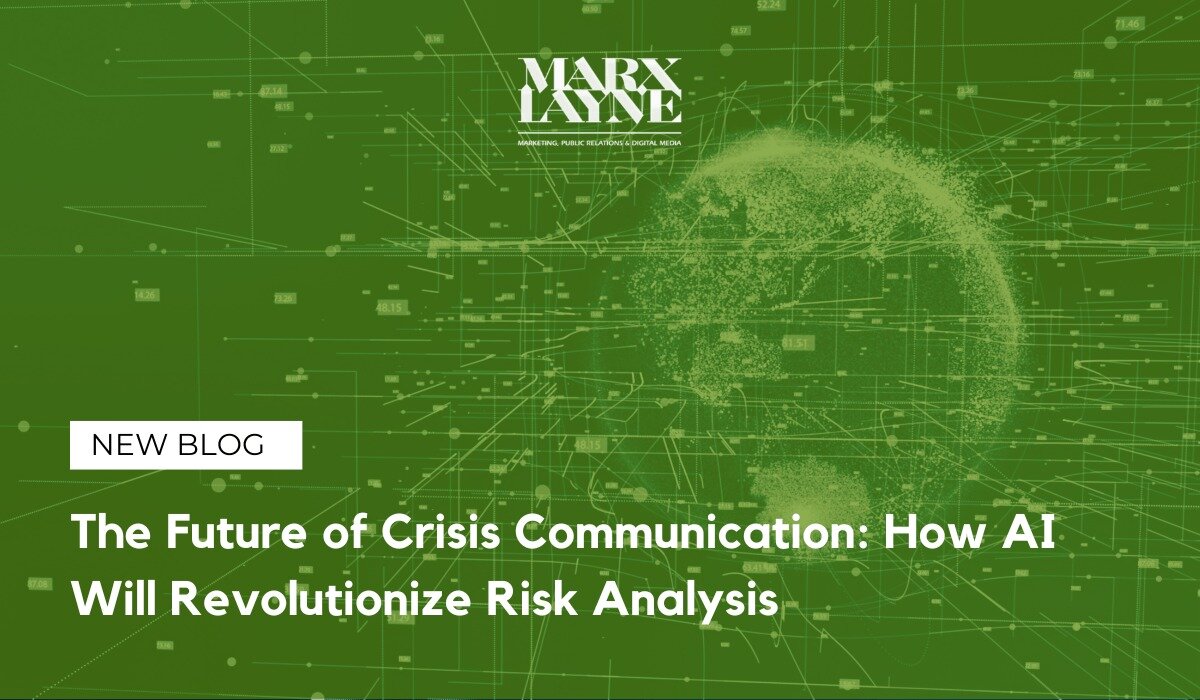
August 06, 2024
The Future of Crisis Communication: How AI Will Revolutionize Risk Analysis
Written by Michael Szudarek When an organization or high-profile individual faces a public relations crisis, reputation, legal exposures, and staff (or family) cohesion and loyalty can quickly spiral out of control—sometimes, never to be regained. Today’s social and independent media channels only accelerate and magnify this reality.
Written by Michael Szudarek
When an organization or high-profile individual faces a public relations crisis, reputation, legal exposures, and staff (or family) cohesion and loyalty can quickly spiral out of control—sometimes, never to be regained. Today’s social and independent media channels only accelerate and magnify this reality.
While management of these crises has largely been reactive, today’s rapidly advancing artificial intelligence (AI) technologies can allow organizations to identify potential risks more quickly and in greater detail than ever before. This can prevent or lessen the severity of a crisis.
The Power of Predictive Analytics in Crisis Communication
At the core of AI’s impact on crisis communications is predictive analytics, where AI systems analyze large datasets from past crises to identify common triggers, patterns, and outcomes. This historical perspective is complemented by continuous monitoring of real-time data from news outlets, social media platforms, and other digital channels, emphasizing the tone and context of online conservations.
In doing so, AI algorithms can gauge public mood and predict potential backlash, which is particularly useful for identifying issues before they gain traction and become full-blown crises. For instance, if a company’s product consistently receives negative feedback over time, AI can predict the likelihood of a larger public relations issue based on how similar circumstances have impacted other businesses in the past.
Proactive Risk Assessment and Strategy Formulation
In proactive risk management, AI identifies and categorizes potential risks based on their likelihood and potential impact. This enables organizations to prioritize which risks require immediate attention. Organizations can use AI-generated insights to develop detailed response plans for various crisis scenarios, including identifying key stakeholders, communication channels, and response strategies. By understanding the potential impact of different risks, organizations can allocate resources more effectively, ensuring that critical issues are addressed promptly and efficiently. AI systems learn and improve over time, refining their predictions and recommendations. This iterative process ensures that crisis management strategies evolve with changing circumstances.
Collaboration Between Human Experts and AI
Human experts play a vital role in feeding relevant data into AI systems and validating the outputs, as continuous collaboration is needed to train AI algorithms with up-to-date information, refining their accuracy over time. Moreover, human experience and intuition are essential for interpreting AI-generated conclusions.
Through AI, communications counselors can more quickly and broadly survey an ensuing crisis; access historical comparisons to other crises, including the steps taken and results; and access predictive analysis. Regardless, while AI provides valuable recommendations, the final decision-making—and responsibility—rests with human experts who can envision nuances that AI might miss.
At the Intersection of Technology and Human Insight
As AI continues to evolve, we can expect to see even more advanced natural language processing (NLP) capabilities, improved real-time data analysis, and the integration of AI with other emerging technologies such as blockchain for transparent and secure communication.
By leveraging predictive analytics, real-time monitoring, and human expertise, AI is set to revolutionize crisis communication by enabling crisis managers to predict, prepare for, and better manage potential risks. This shift is crucial, as it can significantly mitigate the impact of crises on an organization’s reputation, operations, and stakeholders.
Share This Story, Choose Your Platform!
Marx Layne is your competitive advantage.
Your reputation and success are our only concerns.
